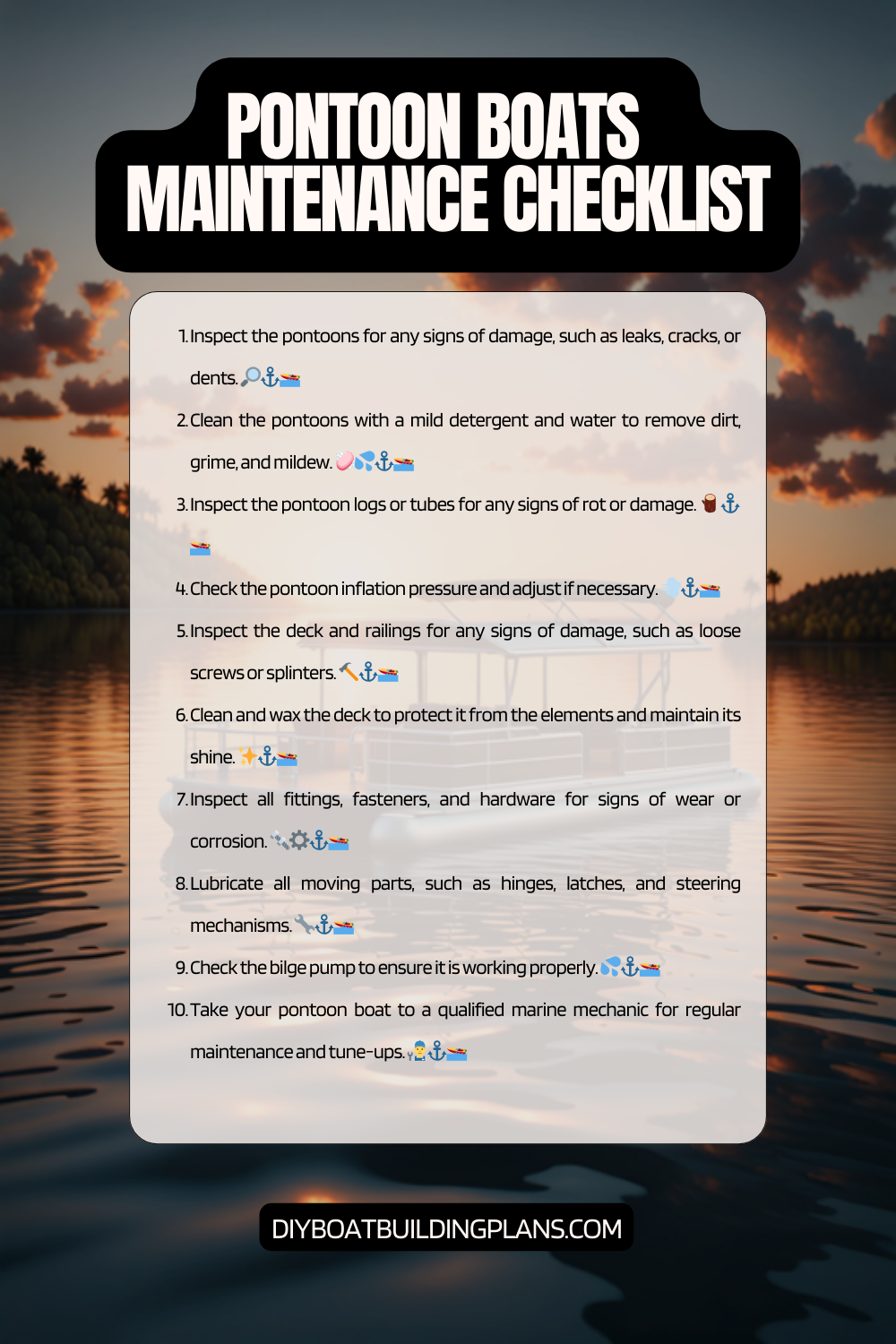Overview of Pontoon Boat Maintenance Tips
Pontoon boats have become increasingly popular among boaters in recent years. These versatile watercraft offer a unique combination of stability, comfort, and space, making them a favorite choice for leisurely cruises, fishing trips, and family outings. Unlike traditional boats with a single hull, pontoon boats feature two or three aluminum pontoons that provide excellent buoyancy and stability on the water. The spacious deck area allows for ample seating and storage, making it ideal for entertaining guests or carrying equipment. With their growing popularity, it is essential for pontoon boat owners to understand the importance of regular maintenance to ensure the longevity and safety of their investment.
Key Takeaways
- Regular maintenance is crucial for the longevity and performance of your pontoon boat.
- Cleaning and protecting your boat from sun and water damage is essential to prevent deterioration.
- Checking and maintaining the electrical and fuel systems can prevent costly repairs and ensure safety.
- Properly maintaining the engine, propeller, and moving parts can improve efficiency and prevent breakdowns.
- Winterizing and storing your pontoon boat correctly can prevent damage and extend its lifespan.

Importance of Regular Maintenance
Regular maintenance is crucial for any boat, and pontoon boats are no exception. By implementing a routine maintenance schedule, boat owners can prolong the life of their vessel and ensure its safety on the water. Regular maintenance helps identify potential issues before they become major problems, saving both time and money in the long run. Additionally, proper maintenance enhances the performance of the boat, ensuring a smooth and enjoyable experience for everyone on board.
Cleaning and Washing the Pontoon Boat
Keeping a pontoon boat clean is not only aesthetically pleasing but also essential for its overall maintenance. Regular cleaning helps prevent the buildup of dirt, grime, and algae that can damage the boat’s exterior finish over time. When cleaning the exterior of the boat, it is important to use specialized cleaners that are safe for use on aluminum surfaces. These cleaners are designed to remove dirt and stains without causing any damage or discoloration. Additionally, using soft brushes or sponges will help avoid scratching the surface.
Cleaning the interior of a pontoon boat is equally important. Regular vacuuming or sweeping will help remove any debris or dirt that may accumulate over time. It is also advisable to wipe down all surfaces with a mild soap solution to remove any stains or spills. Pay special attention to the upholstery and vinyl surfaces, as they can be prone to mold and mildew growth. Using a vinyl protectant will help keep these surfaces looking new and prevent cracking or fading caused by sun exposure.
Protecting the Boat from Sun and Water Damage
| Boat Protection Metric | Description |
|---|---|
| Sun Damage | The amount of damage caused by exposure to the sun’s UV rays, including fading, cracking, and peeling of paint and upholstery. |
| Water Damage | The extent of damage caused by exposure to water, including rust, corrosion, and mold growth. |
| Boat Cover | The type of cover used to protect the boat from sun and water damage, including custom-fit covers, universal covers, and tarpaulins. |
| Boat Lift | The type of lift used to keep the boat out of the water when not in use, including manual lifts, electric lifts, and hydraulic lifts. |
| Boat Wax | The type of wax used to protect the boat’s exterior from sun damage, including carnauba wax, synthetic wax, and ceramic coatings. |
| Boat Cleaner | The type of cleaner used to remove dirt, grime, and salt buildup from the boat’s exterior and interior, including all-purpose cleaners, specialized cleaners, and eco-friendly cleaners. |
Sun and water damage are common issues that pontoon boat owners face. Prolonged exposure to the sun’s UV rays can cause the boat’s exterior finish to fade and deteriorate over time. To protect the boat from sun damage, it is essential to use a boat cover when the boat is not in use. A high-quality cover will shield the boat from harmful UV rays, as well as prevent dirt, debris, and water from accumulating on the deck.
Water damage is another concern for pontoon boat owners, especially if the boat is frequently used in saltwater or freshwater environments. Applying a protective coating to the boat’s exterior can help repel water and prevent corrosion. There are various marine-grade coatings available that are specifically designed for aluminum surfaces. These coatings create a barrier that prevents water from penetrating the metal, reducing the risk of rust and corrosion.
Checking and Maintaining the Electrical System
The electrical system of a pontoon boat is responsible for powering various components, such as lights, navigation systems, and pumps. Regularly checking and maintaining the electrical system is crucial for both safety and functionality. Start by inspecting the battery for any signs of corrosion or damage. Clean the battery terminals using a wire brush and apply a thin layer of petroleum jelly to prevent future corrosion.
Next, check all wiring connections for tightness and signs of wear or fraying. Loose connections can lead to electrical malfunctions or even fires, so it is important to address any issues promptly. Inspect all switches, fuses, and circuit breakers to ensure they are functioning correctly. Replace any faulty components as needed.
Inspecting and Maintaining the Fuel System
The fuel system is a vital component of any boat, and pontoon boats are no exception. Regular inspection and maintenance of the fuel system are essential for optimal performance and safety. Start by checking the fuel lines for any signs of leaks or damage. Replace any worn or cracked fuel lines immediately to prevent fuel leaks, which can be a fire hazard.
Next, inspect the fuel filter and replace it if necessary. A clogged fuel filter can restrict fuel flow, leading to engine performance issues. It is also important to drain any water that may have accumulated in the fuel tank. Water in the fuel can cause engine damage and affect performance.
Maintaining the Engine and Propeller
The engine and propeller are critical components of a pontoon boat, and proper maintenance is essential to keep them running smoothly. Regularly changing the engine oil and filter is crucial for optimal engine performance and longevity. Follow the manufacturer’s recommendations for oil change intervals and use the recommended oil type.
Inspect the propeller for any signs of damage, such as dents or bent blades. A damaged propeller can affect the boat’s performance and put unnecessary strain on the engine. Replace any damaged propellers promptly to avoid further issues.
Lubricating and Maintaining Moving Parts
Lubricating moving parts is an often overlooked but important aspect of pontoon boat maintenance. Regular lubrication helps reduce friction, prevent wear and tear, and extend the life of various components. Use a marine-grade lubricant to grease hinges, latches, steering mechanisms, and other moving parts. Be sure to follow the manufacturer’s recommendations for lubrication intervals and use the correct type of lubricant for each application.
Regularly inspect all moving parts for signs of wear or damage. Replace any worn or damaged components promptly to prevent further issues.
Winterizing the Pontoon Boat
Properly winterizing a pontoon boat is essential for protecting it during the colder months when it is not in use. Start by draining all water from the boat’s systems, including the engine, plumbing, and livewells. Use compressed air to blow out any remaining water to prevent freezing and damage.
Add antifreeze to the engine’s cooling system to protect it from freezing temperatures. Follow the manufacturer’s recommendations for the correct type and amount of antifreeze to use.
Storing the Boat Properly
Storing a pontoon boat properly is crucial for its overall maintenance and longevity. When not in use, it is important to keep the boat covered to protect it from the elements. A high-quality boat cover will shield the boat from UV rays, rain, snow, and debris.
Choose a storage location that is dry, cool, and well-ventilated. Avoid storing the boat in direct sunlight or extreme temperatures, as these conditions can accelerate wear and tear.
Download over 500 Boat Plans. Click on the link below.
-->Click Here<--
Pontoon Boat Maintenance Checklist

Conclusion – Pontoon Boat Maintenance Tips
Regular maintenance is essential for keeping a pontoon boat in top condition. By following a routine maintenance schedule and implementing the tips mentioned above, boat owners can prolong the life of their vessel and ensure its safety on the water. From cleaning and protecting the boat’s exterior to inspecting and maintaining its various systems, each aspect of maintenance plays a crucial role in preserving the boat’s performance and appearance. By investing time and effort into proper maintenance, pontoon boat owners can enjoy many years of trouble-free boating experiences.
FAQs – Pontoon Boat Maintenance Tips
What is a pontoon boat?
A pontoon boat is a type of boat that has a flat deck that is supported by two or more pontoons. These pontoons are cylindrical in shape and are filled with air or foam to provide buoyancy.
Why is maintenance important for pontoon boats?
Maintenance is important for pontoon boats to ensure that they remain in good condition and operate safely. Regular maintenance can also help to prevent costly repairs and extend the life of the boat.
What are some common maintenance tasks for pontoon boats?
Common maintenance tasks for pontoon boats include cleaning the boat, checking and changing the oil, inspecting the propeller, checking the battery, and inspecting the hull for damage.
How often should I clean my pontoon boat?
You should clean your pontoon boat after every use to prevent dirt and grime from building up. You should also give your boat a thorough cleaning at least once a month.
How often should I change the oil in my pontoon boat?
You should change the oil in your pontoon boat every 50-100 hours of use or at least once a year, whichever comes first.
How do I inspect the propeller on my pontoon boat?
To inspect the propeller on your pontoon boat, you should check for any damage or wear and tear. You should also make sure that the propeller is securely attached to the boat and that there are no loose or missing bolts.
How do I check the battery on my pontoon boat?
To check the battery on your pontoon boat, you should inspect the battery terminals for corrosion and make sure that they are securely attached. You should also check the battery fluid level and top it off if necessary.
How do I inspect the hull of my pontoon boat?
To inspect the hull of your pontoon boat, you should look for any cracks, dents, or other damage. You should also check the hull for any signs of corrosion or rust.



